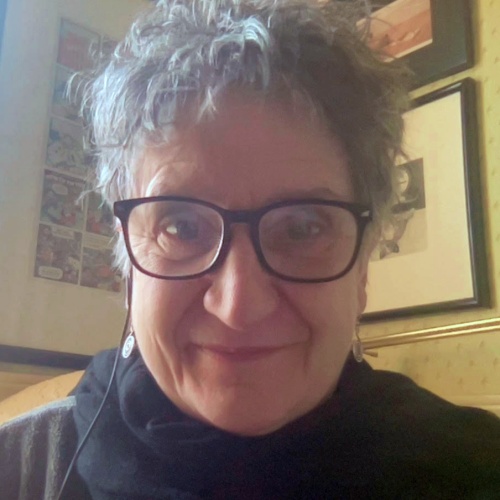Trying to align our money choices with our deepest values was confusing, humbling, and complicated. But we weren’t (and aren’t) alone.
A few years ago my husband Zach and I began having conversations about “faith and money.” We entered the conversations with some trepidation, as if we were entering uncharted territory.
Simplicity and responsibility
The conversations began by acknowledging confusion over values of spiritual teachings of simplicity with the cultural imperative of taking financial responsibility for ourselves and our future. A growing sense of underlying contradictions developed as we asked ourselves how we could live by the wisdom of teachings such as Matthew 19:24 (“…it is easier for a camel to go through the eye of a needle than for a rich person to enter the Kingdom of God!”) and Matthew 6:24 (“No man can serve two masters: for either he will hate the one, and love the other; or else he will hold to the one, and despise the other. Ye cannot serve God and mammon.”) while hoping for our stock values to increase. What was the difference between avarice and responsible “investing for our future?” Were we complicit in supporting an economy whose wealth depended on growing exploitation of resources and labor?
Reading books like David Korten’s When Corporations Rule the World and Agenda for a New Economy, along with Walter Brueggemann’s Journey to the Common Good and Sabbath as Resistance: Saying No to the Culture Now contributed to my suspicions that not only were Zach and I on the wrong path in terms of our ideas about and relationship to money and wealth, but that much of the modern world was, too.
While we continued to accept the belief that we had to provide for ourselves and our future, we weren’t exactly comfortable with it. We compensated by increasing our contributions and donations proportionate to our IRA and 401k increasing stock values. But even that didn’t exactly sit well, especially as we learned more about how “charity” can often help maintain a system that increasingly causes a growing need for charity. (See Stanford Social Innovation Review, 2017.)
But working full time (in the food and beverage industry and office work, respectively), we just didn’t have the time to research where our investment funds were going. Oil drilling in environmentally sensitive areas? Cruel testing on animals? Forced slave labor? How could we possibly track what those ever-moving funds of our money market investments were supporting? We had no choice, we told ourselves. Everyone was doing it that way. There was no option.
And so our well-meaning but increasingly suspect justifications continued while the growing awareness of our own hypocrisy and complicity increased.
Finding advice and community
Gratefully, we began to hear about others who felt this way, others who had similar values but, like us, did not have the courage nor inclination to live a radical life of faith-based simplicity and service, trusting completely in God’s care to provide (Matthew 6:26: Look at the birds of the air; they do not sow or reap or store away in barns, and yet your heavenly Father feeds them…).
So we took some simple initial steps, educating ourselves further and taking a few basic actions to attempt to align our investments with our values. With the help and advice of socially responsible investment advisors Natural Investments and Just Money:
- We took our money out of traditional investments and shifted it to “socially responsible” investments (SRI).
- We moved our savings and checking accounts from “big banks” into a local community credit union.
- We moved some of our money from the credit union to BIPOC (Black Indigenous People-of-Color) owned financial institutions.
- With a growing understanding of helping marginalized communities build sustainable wealth, we moved some of our remaining savings into a low-interest (1%) loan to a local food production and distribution organization.
Then, by God’s grace, I was reunited with the Sisters of Loretto from my alma mater, Loretto Heights College. While not being nor having been raised Catholic, I had always been deeply drawn to the peace and justice values of the Sisters of Loretto. Here were women living a “vow of poverty” by pooling their respective incomes (through teaching, social work, etc.) and living simply on frugal budgets, using their funds to build schools and help the poor. I soon learned about Co-members (non-vowed) of Loretto who, along with the sisters, were “working for justice and acting for peace,” eventually becoming a Loretto co-member myself.
Wealth and (in)justice
With a growing awareness of the injustices of our economic system, its dependence on cheap (and historically slave) labor, and even assumptions regarding money for charity vs. money for systemic change, many in our Loretto Community are looking deeper into aspects of money and wealth. How do we obtain our money that provides for our ongoing missions and the care of the sisters? Even if it comes from “donations,” how is the original wealth of that donation obtained? How might we address reparations for land and wealth historically obtained unjustly? Questions like these are leading many of us to explore the interconnectedness of wealth, racism, models of hierarchy and privilege, and assumptions about personal value and what our ideas of “needs” are really based upon as we explore issues of poverty, sustainability and questions of wealth and justice. We have recently signed on to the seven goals of Laudato Si in an attempt to collectively address many of these issues.
Intergenerational approaches
Additionally, we are actively learning from those younger people who are committed to living more closely aligned to their values. The Nuns & Nones, the Foundation for Intentional Communities and Gesturing Towards Decolonial Futures are some examples of intergenerational movements dedicated to living with new visions for a more just future. We have created a Cooperative Economics working group in our non-profit “Loretto Link” which is educating ourselves on these complex questions regarding economic wealth. Last summer we presented a workshop with a guest speaker from Local Futures to educate ourselves and our friends on global systems of economic injustice. Others in Loretto are working towards creating an intentional community as one of the few models that can integrate both the deep values of Loretto with a workable lifestyle that can provide a framework for living those values outside of a canonically vowed life.
In this time of deep global unrest, collapsing environmental systems, decreasing access to resources for basic human needs, polarized and ineffective politics and growing economic disparities, our responsibilities are both individual and collective, and must be informed by deep spiritual values. It will take more than personal acts of recycling, donating to charities, and responsible investing to address these devastating ills. But isn’t that what our faith calls us to?

Lisa Reynolds | March 23, 2022
Lisa Reynolds has been a co-member of the Loretto Community since 2009 and currently serves as their Co-membership Coordinator. She was a participant in the January 2022 Money, Faith and You online study group. Learn more about Money, Faith and You study groups.
